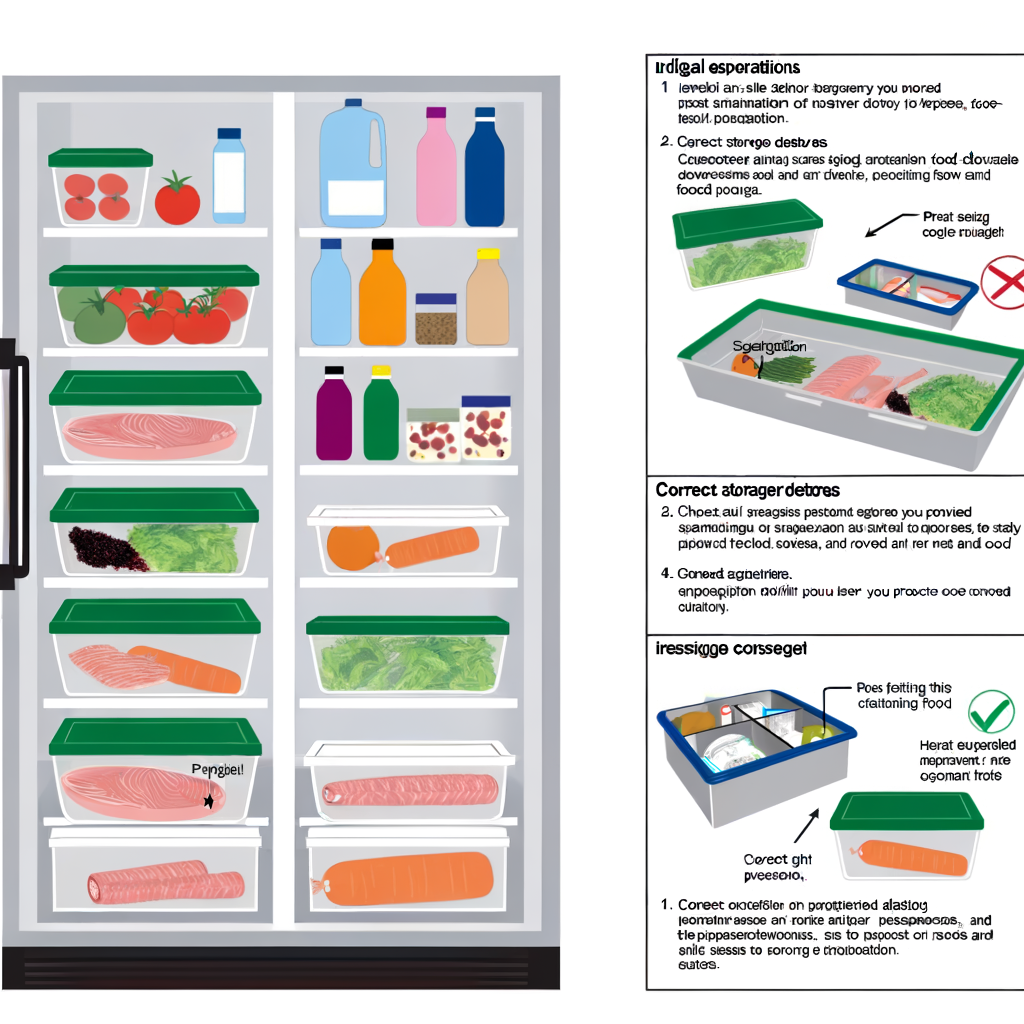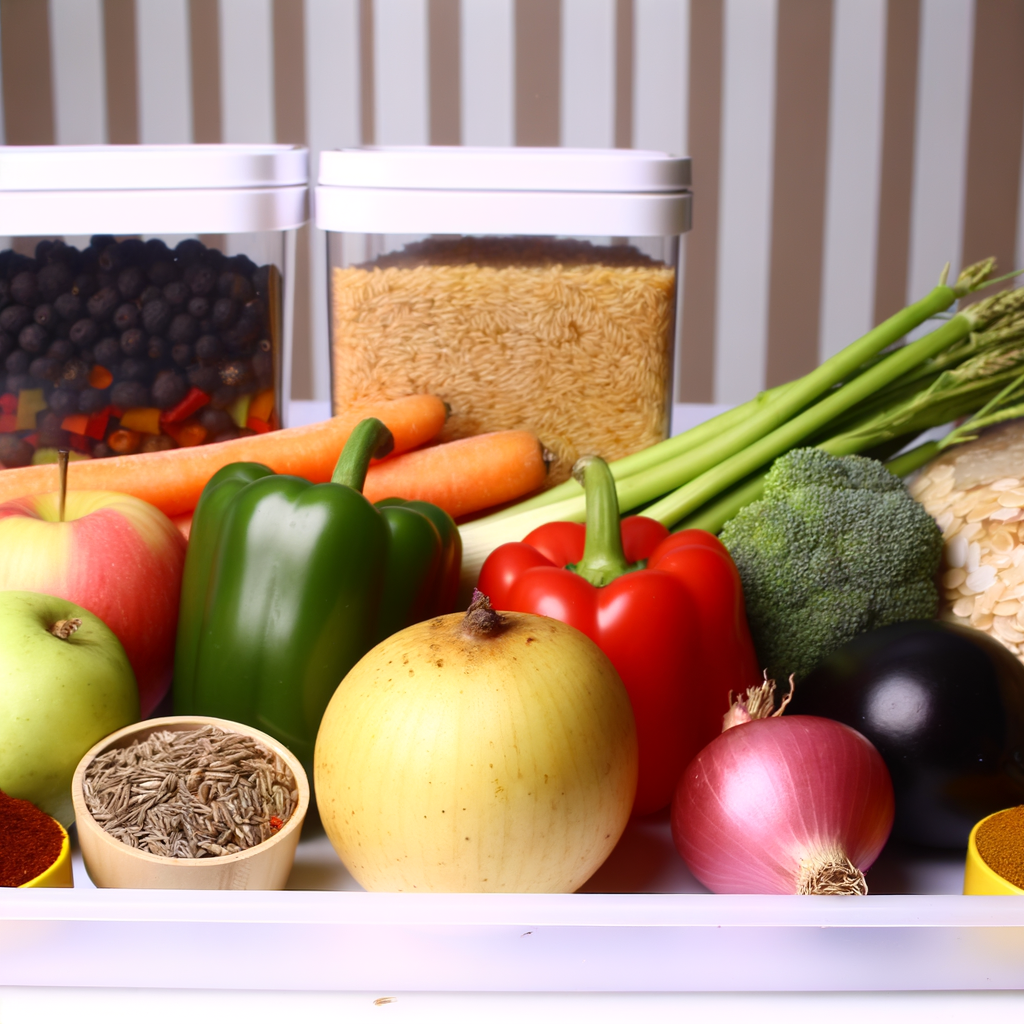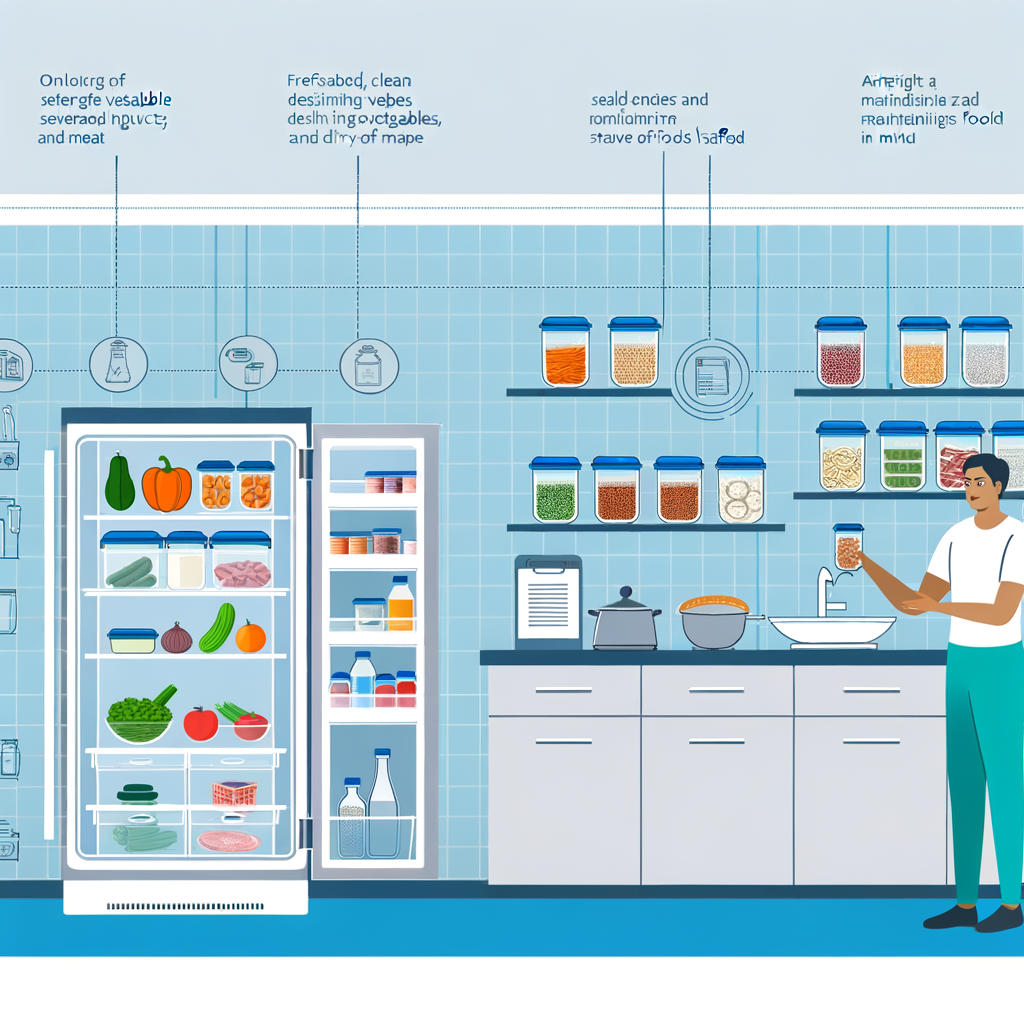Ensuring food safety is crucial for any chef, regardless of their expertise. It is not only a matter of maintaining the quality of the food, but also the health and well-being of the consumers. One of the key factors in achieving food safety is proper storage. In this article, we will explore the importance of proper storage and how it can help prevent foodborne illnesses.
First and foremost, proper storage helps maintain the freshness of the food. This is especially important for perishable items such as meat, fish, and dairy products. By storing these items at the correct temperature, you can prevent the growth of harmful bacteria and extend the shelf life of the food. This not only ensures the safety of the food, but also reduces waste and saves you money.
Another important aspect of proper storage is preventing cross-contamination. Storing raw and cooked foods separately is crucial in preventing the spread of bacteria. Raw meat, poultry, and seafood should always be stored on the bottom shelf to prevent their juices from dripping onto other foods. Additionally, it is important to properly label and date your food to ensure that older items are used first, reducing the risk of consuming spoiled food.
Proper storage also plays a key role in maintaining the quality of the food. Storing food in airtight containers and wrapping it properly can prevent it from drying out or absorbing odors from other foods. This not only ensures that the food is safe to consume, but also enhances its flavor and texture.
In conclusion, as a chef, it is your responsibility to prioritize food safety. By following proper storage techniques, you can ensure the freshness, quality, and safety of the food you serve. Remember to always store food at the correct temperature, prevent cross-contamination, and properly label and date your food. By doing so, you can provide your customers with a safe and enjoyable dining experience.





